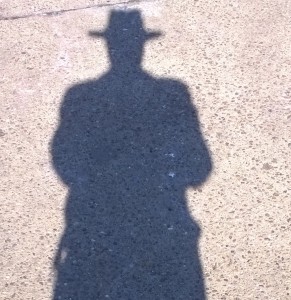As I wrote in my previous blog on Vietnam and the Geneva Peace Conference, politicians on both sides made agreements at the conference table that neither side planned to follow. The Geneva Peace Conference Accords favored the North, mostly because it was driven by China’s Zhou En-lai and the North Vietnamese Representatives.
The first thing Ho Chi Minh did was kill off political opposition to him within North Vietnam. Next, Ho sent Viet Minh soldiers into South Vietnam to intimidate and kill innocent civilians. Soon their intimidation turned to recruiting people in the South to follow their cause—or die. To say the least, it was an effective campaign.
The United States did not earn any angel wings, either, but remember, neither the United States nor South Vietnam signed the Accords. However, they did say they would comply with those Accords.
But in this blog, I want to focus on two of my favorite real-life people—Edward Lansdale and Lucien Conein. They were true American heroes from a time when we needed men such as these. I love these guys—they’re so full of larger-than-life qualities—both good and bad. Great for writing.
In the summer of 1954, Lansdale, an Air Force Colonel and CIA agent whose specialty was counter-insurgency, led a team of agents that included CIA agents Conein as his second in command as well as Theodore Shackley into Vietnam to begin a series of covert operations against North Vietnam. Many of those sabotage missions failed.Their goal was to mount a propaganda campaign to persuade the Vietnamese people in the South not to vote for the Communists in future elections.
Conein’s “cover” going back into Vietnam was to arrange air transport for northerners fleeing the Communist Viet Minh. However, his assignment was to sabotage the victorious Viet Minh takeover of northern Vietnam by creating a stay-behind setup for possible guerrilla resistance. Besides sabotaging the public transportation system detailed above, Conein was to leave behind necessary supplies for a rebellion against the Communist regime. He came up with the novel idea of packing military hardware into coffins and burying them in cemeteries. However, the anti-Communist uprisings never materialized. In October 1954g, in the last days the U.S. personnel were to be in Hanoi, a special CIA-trained team led by Conein contaminated the oil supply for the public transportation. This was done so the motors would fail slowly.
Conein was never short on creativity. When the French were pulling out of Vietnam and very up-set with the Americans, Lansdale requested the new US Ambassador fortify his personal residence. The Ambassador didn’t heed his advice. So, on his way home from dinner, Conein drove by the Ambassador’s residence and tossed a live grenade on his front yard. I can just see the man laughing all the way home.
The next day, the Ambassador accepted Lansdale’s suggestion.
As election time rolled around in South Vietnam, Lansdale’s role broadened to finding a leader who could consolidate power. Both North and South Vietnam had been “governed” by territorial warlords for decades. As mentioned earlier, Ho Chi Minh did what he needed to do to consolidate his power in the North with the help of Red China and to a lesser degree the Soviet Union. In the South, Lansdale selected Ngo Dinh Diem, a Catholic in a predominately Buddhist country, from a number of warlords to run against Bao Dai, the former emperor and a member of the Vietnamese royal family. Bao Dai had been propped up as a figurehead by the French prior to World War II, but he fled the country when the Japanese invaded. So when election time came in October 1955, the South Vietnamese people were asked to choose between Bao Dai and Diem for the leadership of the country. Lansdale suggested that Diem have the election commission provide two ballots, a red one for those voting for Diem and a green one for those voting for Bao Dai. Lansdale made this suggestion because of the Vietnamese belief that red signified good luck while green indicated bad fortune—just another small way in which he could help influence the result.
During the voting process, Diem supporters dominated the polling places. Some voters claimed they were told to put the red ballots in envelopes and to throw the green ballots away. There was also violence against Bao Dai voters. Basically, the election was held under third-world conditions. Lansdale believed he had to consolidate power quickly because he thought it was only a matter of time before the Communists would resort to open warfare.
With the results never in doubt, Diem told Lansdale and US officials that he’d won 98.2 % of the vote. Lansdale warned him these figures would not be believed and suggested he publish a figure of around 70 %. Diem refused, as the Americans predicted, since he used the higher figures, it was the beginning of mistrust of his administration from the very beginning.
Lansdale’s next assignment was to train the South Vietnamese Army (ARVN) in modern fighting methods. In May 1956, the US sent 350 military advisors, which was a direct violation of the Geneva Accords.
The Geneva Peace Conference Accords called for talks to begin between the two Vietnams in July 1956 to set forth plans for elections late the following year to unify the divided country. Diem refused to comply. The US knew Diem was so unpopular that he had no chance of being elected against Ho Chi Minh. As a result, the US had to scramble to come up with a solution to this imminent crisis.
So, long before the US officially joined the Vietnam conflict by sending troops, Lansdale and Conein were there stirring the pot.
Were you aware of this part of world history? Do you think these things still go on today?

Nothing as sinister as that. Unlike a recent presidential candidate, I would be doing time in a federal penitentiary for divulging classified info.
I was unaware of the Church Commission. My last few years on active duty I had several occasions to work with CIA analysts. My best take-away was they were a bit arrogant, and didn’t care to hear the musings of a lowly Army Officer. The wiz kids were only interested in hard verifiable facts, and not intuition based on experience. Sorry I can’t be more specific.
I know if you told me more, you would probably have to terminate me. Then I would be on the run avoiding you for as long as I could.
Very interesting, and an excellent read. I found myself thinking, “I should have known that”. Not particularly because I’m a historian, but knowing that by the mid 50’s our operatives had a plethora of experience from their OSS days during WWII, and working Eastern Europe under the Soviets. Couple that experience with the knowledge of the “Old China hands” and this should not have been that surprising to me. Thanks for challenging me to do some thinking.
As to your last question, one would have to be severely naïve, and have no knowledge of US postwar history to believe we are that chaste as to be uninvolved.
One last thought on all of this. I just wonder if today’s sophisticated technology sanitizes these type of ops to a computer game mentality. It definitely takes away from these swashbuckling 007 type stories.
The Church Commission in the 1970’s took away most of the “swashbuckling” by the “characters” in the CIA. Many of them retired, if allowed to because there assignments changed. As you know better than I, without boots on the ground, the computer or satilite information is never as good. Nor is your ability to control the mission.